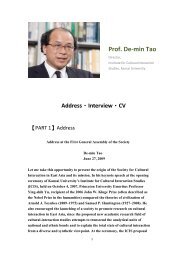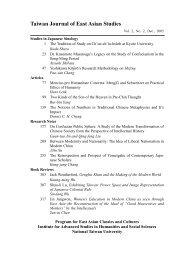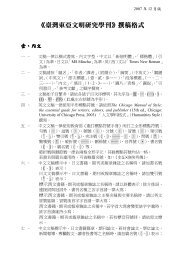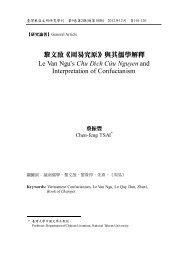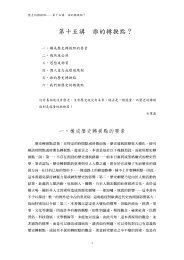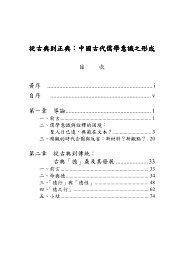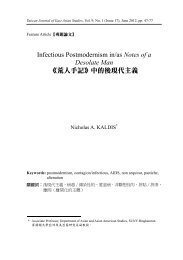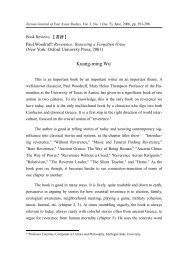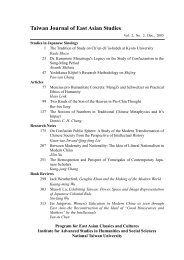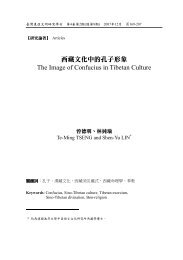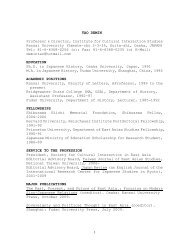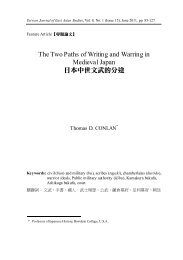臺灣東亞文明研究學刊 - 東亞經典與文化研究計畫 - 國立臺灣大學
臺灣東亞文明研究學刊 - 東亞經典與文化研究計畫 - 國立臺灣大學
臺灣東亞文明研究學刊 - 東亞經典與文化研究計畫 - 國立臺灣大學
Create successful ePaper yourself
Turn your PDF publications into a flip-book with our unique Google optimized e-Paper software.
Nicholas T. PHILLIPSON Theorising the Problems of Small Nations in the Enlightenment 229<br />
problem of whether it was possible to maintain a peaceful union between two states<br />
which was based on the idea of limited monarchy.<br />
What is interesting about this period in Scottish history is that every informed<br />
member of the Scottish political elite knew the lessons of European history, that<br />
composite monarchies whose rulers lacked well-constructed integrated systems of<br />
government and large standing armies were prone to the sort of political instability<br />
that had been Scotland's lot for much of the seventeenth century, but they also knew<br />
very well that the price of integration in Britain was loss of national independence.<br />
At the same time European history taught that it was hard for small nations to<br />
survive as independent political entities unless they had viable political institutions<br />
or were protected by greater powers. By the later seventeenth century, so far as the<br />
smaller nations of contemporary Europe were concerned, the answer seemed to lie<br />
in exploiting the resources of international trade and commerce. As the recent<br />
history of the Netherlands showed, it was possible for a small nation with a highly<br />
developed trading economy to develop as a military and naval power which was<br />
capable of holding enormous monarchies like France in check.<br />
In the last two decades of the seventeenth century, the Scots were to study the<br />
example of the Netherlands with care. It was a country they knew well and knew at<br />
first hand. Many had been exiled there between 1660 and 1688 when their faith had<br />
been criminalised by the restored Stuart monarchy. From 1660 to the 1720's its<br />
universities provided Scottish gentlemen with a sophisticated and cosmopolitan<br />
education. Above all, the Netherlands were known to them through the lucrative<br />
trade links that developed with the east coast Scottish ports. The belief that<br />
international trade could turn a small and vulnerable state into an independent and<br />
possibly a great one was enough to encourage the Scots parliament, and a strikingly<br />
large sector of its landed and professional class to invest in the Darien Scheme, a<br />
remarkable colonial enterprise, which was conceived in 1695 and was intended to<br />
establish a Scottish entrepôt in Panama at the junction of the Atlantic and Pacific<br />
Oceans. The project failed, and failed dramatically. The English court and<br />
v



